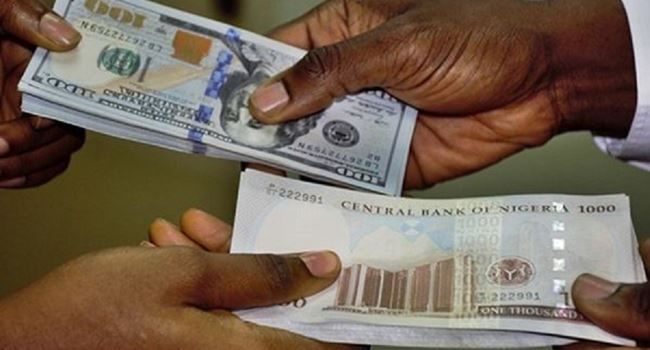
Naira and dollar
Naira continues to depreciate, despite rising Nigeria’s external reserves
The impact of rising Nigeria’s external reserves is yet to reflect on the value of the Naira.
Indeed, despite a remarkable resurgence in the nation’s external reserves, reaching a new high of $39.07 billion as of September 19, 2024, there is no direct increase of the Naira value.
However, this significant boost, announced by the Central Bank of Nigeria (CBN) Governor Yemi Cardoso, marks a substantial increase from the $33.28 billion recorded in the same period last year.
Interestingly, however, the reserves now provide sufficient cover for nearly eight months of imports of goods and services, a significant improvement from previous years.
The growing reserves offer a glimmer of hope for Nigeria’s economy, but the accompanying depreciation of the naira against the dollar presents a perplexing paradox.
Despite the influx of foreign currency, the local currency has continued its downward spiral, raising concerns about its stability and impact on the broader economy.
However, several factors are said to have contributed to the increase in Nigeria’s external reserves. One key driver has been the federal government’s successful issuance of domestic dollar bonds, which have attracted significant foreign investment.
Also, remittances from Nigerians living abroad have provided a steady stream of foreign currency inflows. Multilateral loans from international organizations and foreign portfolio investments have also played a role in bolstering the reserves.
There is no doubt that the government’s efforts to attract foreign capital have been particularly effective. The issuance of a $500 million domestic US dollar bond, part of a larger $2 billion program, has yielded over $900 million in investments. This demonstrates the growing confidence of international investors in Nigeria’s economy and its potential for growth.
But it remains worrisome that the naira keeps depreciating in value. In the official foreign exchange market, the naira has lost nearly 50 percent of its value against the greenback over the past year.
This decline has been even more pronounced in the parallel market, where the naira has depreciated by over 40 percent.
Several factors contribute to the naira’s weakness. One is the persistent demand for foreign currency, particularly for imports of essential goods and services. The country’s trade deficit, which has been a long-standing challenge, continues to exert downward pressure on the naira. Additionally, the CBN’s intervention in the foreign exchange market, aimed at managing the exchange rate, has also contributed to the naira’s depreciation.
